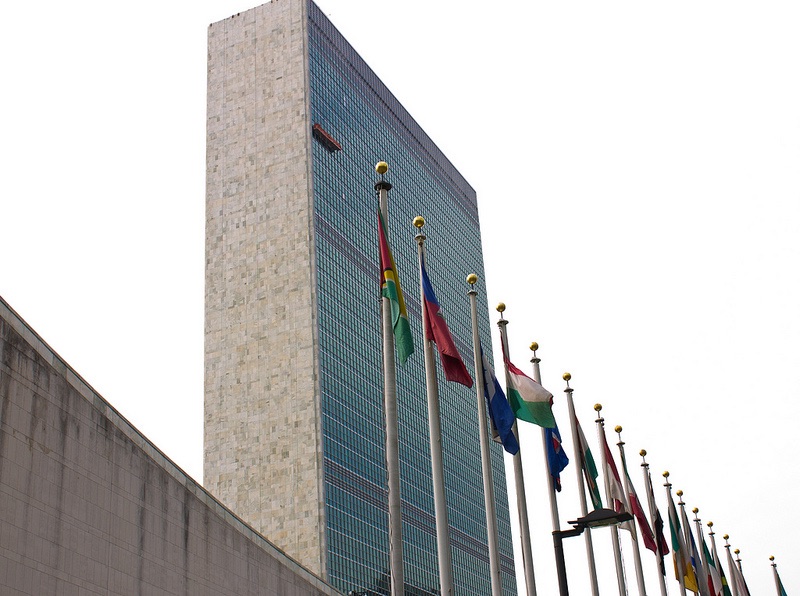Joint Communiqué – States renewed half of the members of the CERD
On June 22nd, States parties to the International Convention on the Elimination of Racial Discrimination (ICERD) voted to renew half of the membership of the Committee. They elected 5 new experts, including for the first time a Roma person, and re-elected 4 members who were already sitting in the Committee, among 15 candidates from all […]

On June 22nd, States parties to the International Convention on the Elimination of Racial Discrimination (ICERD) voted to renew half of the membership of the Committee. They elected 5 new experts, including for the first time a Roma person, and re-elected 4 members who were already sitting in the Committee, among 15 candidates from all regions.
New members include Ms. Chinsung Chung (Republic of Korea), Ms. Keiko Ko (Japan), Ms. Rita Izsak-Ndiaye (Hungary), Mr. Bakari Sidiki Diaby (Côte d’Ivoire) and Mr. Silvio José Albuquerque E. Silva (Brazil).
They will join 4 experts whose terms as members of the CERD were coming to an end and who have been re-elected for another four-year period: Mr. Gün Kut (Turkey), Mr. Marc Bossuyt (Belgium), Mr. Noureddine Amir (Algeria) and Mr. Yeung Kam John Yeung Sik Yuen (Mauritius), as well as the 9 other members of the Committee, whose mandate will expire in 2020[1].
Minority Rights Group International (MRG), the International Institute on Race, Equality and Human Rights (Race and Equality) and the International Movement Against All Forms of Discrimination and Racism (IMADR), congratulate newly elected members of the CERD Committee and those re-elected.
Most notably, with the election of Ms. Izsak-Ndiaye from Hungary, the CERD Committee will count the first Roma member since its creation.
The election of Mr. Albuquerque E. Silva from Brazil also indicates the continuing representation of membership with persons of African-descent.
We welcome this greater participation of experts with a variety of minority and indigenous backgrounds in the CERD membership. We also welcome the appointment of 3 women to join the 5 female members already seating on the Committee, increasing the representation of women from 39% to 44%. It is the highest number of female members since the creation of the CERD, a committee which has been marked for long by gender disparity. We encourage States parties to intensify efforts to ensure a good gender balance in the Committee’s membership.
In an effort to promote a merit-based and transparent CERD election process, our three organisations circulated questionnaires to all 15 candidates on their background, relevant experience and vision of their work as a member of the Committee. Responses received were then posted on a dedicated website: www.untbelections.org, and shared with States parties ahead of the election in order to help them learn the qualifications of respective candidates and inform their decision.
Background:
The Committee on the Elimination of Racial Discrimination is composed of 18 independent experts.
Members are elected for a term of 4 years by States parties from among their nationals, consideration being given to equitable geographical distribution and to representation of the different forms of civilization as well as of the principal legal systems, in accordance with article 8 of the ICERD.
Elections are held every 2 years at a meeting of State Parties held at the UN headquarters in New York.
The newly elected members will begin their term in January 2018 and their mandates will expire in January 2022.
For further information, please contact:
Taisuke Komatsu (IMADR) at tkomatsu@imadr.org,
Glenn Payot (MRG) at Glenn.Payot@mrgmail.org,
Laia Evia (Race & Equality) Evia@oldrace.wp
[1] Mr. Avtonomov (Russia), Mr. Cali Tzay (Guatemala), Ms. Dah (Burkina Faso), Mr. Marugan (Spain), Ms. McDougall (USA), Ms. Mohamed (Mauritania), Mr. Murillo Martinez (Colombia), Ms. Shepherd (Jamaica) and Ms. Li (China)
———
Click here for the full Communiqué.

